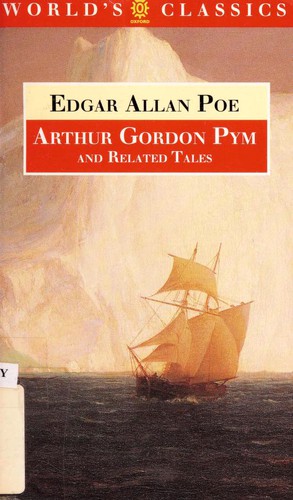Paperback, 301 pages
English language
Published Jan. 13, 1994 by Oxford University Press.
and Related Tales The World's Classics

Paperback, 301 pages
English language
Published Jan. 13, 1994 by Oxford University Press.
The Narrative of Arthur Gordon Pym is an archetypal American story of escape from home and family which traces a young man's rite of passage through a series of terrible brushes with death during a fateful sea voyage. But the plot also goes much deeper, as Pym encounters various interpretative dilemmas, and then leaves the reader with a broken-off ending that defies solution.
Apart from its violence and mystery, the tale calls attention to the act of writing and to the problem of representing truth. Layer upon layer of elaborate hoaxes include its author's own role or posing as ghost-writer of early portions or the narrative; Pym—his only novel—has become the key text for our understanding of Poe.
This edition offers eight short tales which are linked to Pym by their treatment of persistent themes—fantastic voyages, gigantic whirlpools, and premature burials—or by their ironic commentary on Poe's mystification …
The Narrative of Arthur Gordon Pym is an archetypal American story of escape from home and family which traces a young man's rite of passage through a series of terrible brushes with death during a fateful sea voyage. But the plot also goes much deeper, as Pym encounters various interpretative dilemmas, and then leaves the reader with a broken-off ending that defies solution.
Apart from its violence and mystery, the tale calls attention to the act of writing and to the problem of representing truth. Layer upon layer of elaborate hoaxes include its author's own role or posing as ghost-writer of early portions or the narrative; Pym—his only novel—has become the key text for our understanding of Poe.
This edition offers eight short tales which are linked to Pym by their treatment of persistent themes—fantastic voyages, gigantic whirlpools, and premature burials—or by their ironic commentary on Poe's mystification of his readers. --back cover